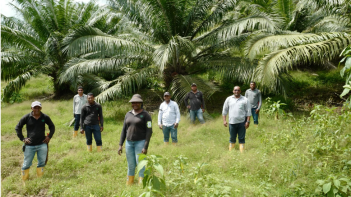By: Kimasha Williams
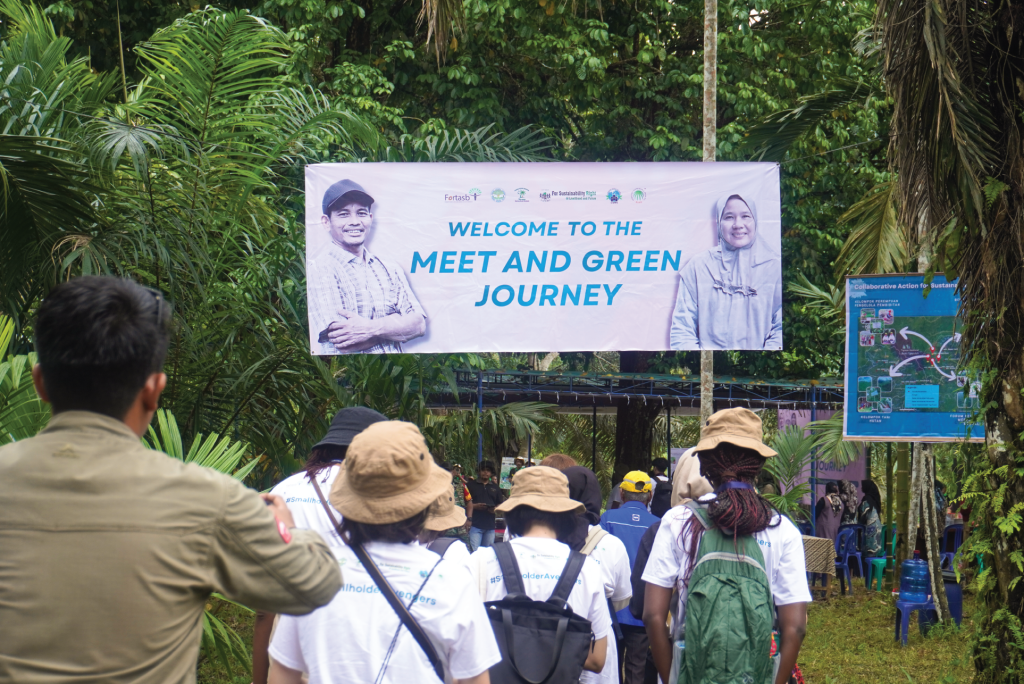
On a bus with a group of RSPO colleagues and members, I started taking photos on the road to FORTASBI’s first-ever Meet and Green Journey in Jambi province. I wasn’t quick enough to get the fully loaded truck with Fresh Fruit Bunches (FFB) speeding past but I soon realised that this was the first of many we would see. Fully loaded trucks of FFB were as common as supermarket delivery vans on the motorway in England.
Jambi is located on the southeast coast of Sumatra. Palm oil production in Indonesia is concentrated in the islands of Borneo and Sumatra, and Jambi is the seventh largest province planted with oil palms, accounting for 1.08 million hectares. More than half of the country’s palm oil production comes from smallholders, and meeting some of them was the purpose of our field trip. We were also going to visit a group of women entrepreneurs supported by independent smallholders.
Three hours later, we arrived in a forest clearing, where we were warmly welcomed by oil palm smallholders, forest farmers and a women’s tree nursery group (Kelompok Perempuan Pengelola Pembibitan (KP3). One smallholder invited us to assist her with an eco-printing demonstration, which involved using leaves to arrange a pattern on a fabric and a dyeing technique that transfers the colours and shape of the leaves onto the fabric. Susi Wahyuni designs scarves and other merchandise, which she sells to contribute to her household income.
Seedlings of change
KP3, quite literally, generates seeds of change. The women are supported by RSPO Certified independent smallholder groups Asosiasi Petani Berkah Mandah Lestari (APBML) and Forum Petani Swadaya Merlung Renah Mendaluh (FPS-MRM). Through the proceeds of the sale of RSPO Credits, the smallholders purchase seedlings from KP3, which they plant within their working areas to enrich the environment.
“We plant fruit trees in the forest so that wildlife can find food to eat. Currently, we plant 10 trees per hectare, our goal is to plant 40 trees per hectare,” one farmer said. KP3 has sold 3,178 coffee seedlings and 1,465 candlenut seedlings – whose strong roots grip the soil and offer resistance to climate change.
“The support between the groups is like passing on a baton in a relay race,” said Firza Radwitami, of FORTASBI, an NGO supporting smallholders in Indonesia. The RSPO Certified independent smallholders support KP3, who in turn support the forestry farmer group Kelompok Tani Hutan (KTH). They sell KTH seedlings at an affordable price as part of their contribution to the restoration of 17 hectares of Social Forestry area, as well as other project forest areas adjacent to Bukit 30 National Park.
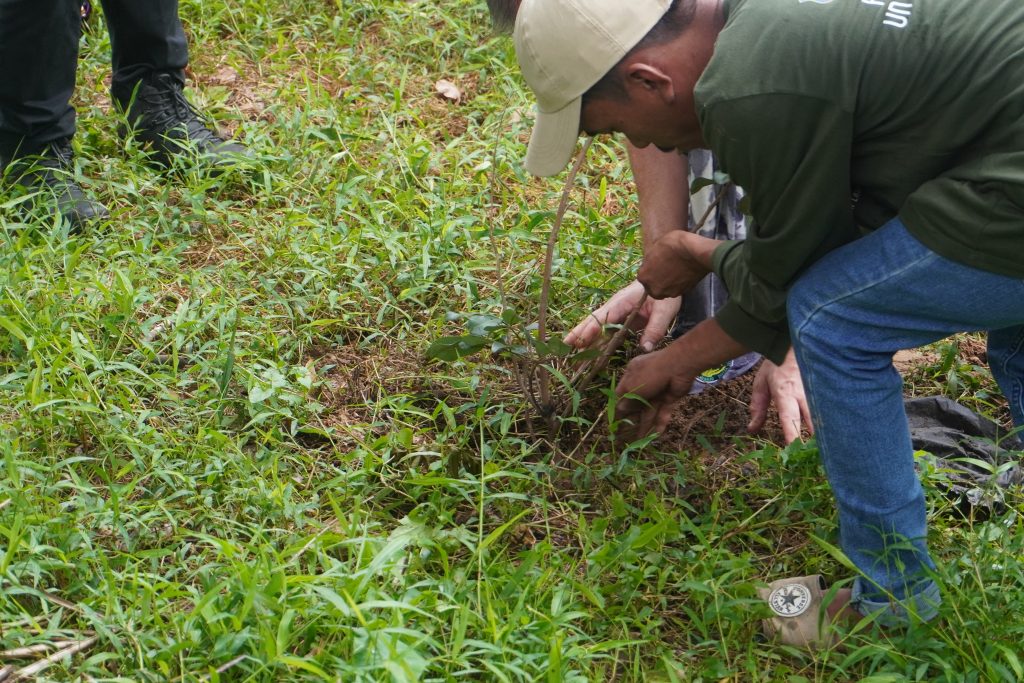
Supporting children’s education
Before going into oil palm agriculture, many of the farmers earned an income through rubber farming. “We used to educate our children up to middle school only. Now, with oil palm, we can give our children further education and even send them to the capital city for school,” one father said.
Supporting education was a dominant theme for the day. ABPML presented scholarships to five students. This brought tears of joy to my eyes, solidifying for me why RSPO’s work with smallholders is so critical. ABPML has provided scholarships to 70 students worth Rp 70 million (USD 4,513). In 2024, an additional 100 students will receive scholarships.
After sharing a scrumptious lunch with the community, we visited an oil palm plantation managed by smallholder and school leader, Imron Rosjidi, who has cut down much of his plantings to establish a school. When asked why, he replied smiling, “Because I want to build future generations.”
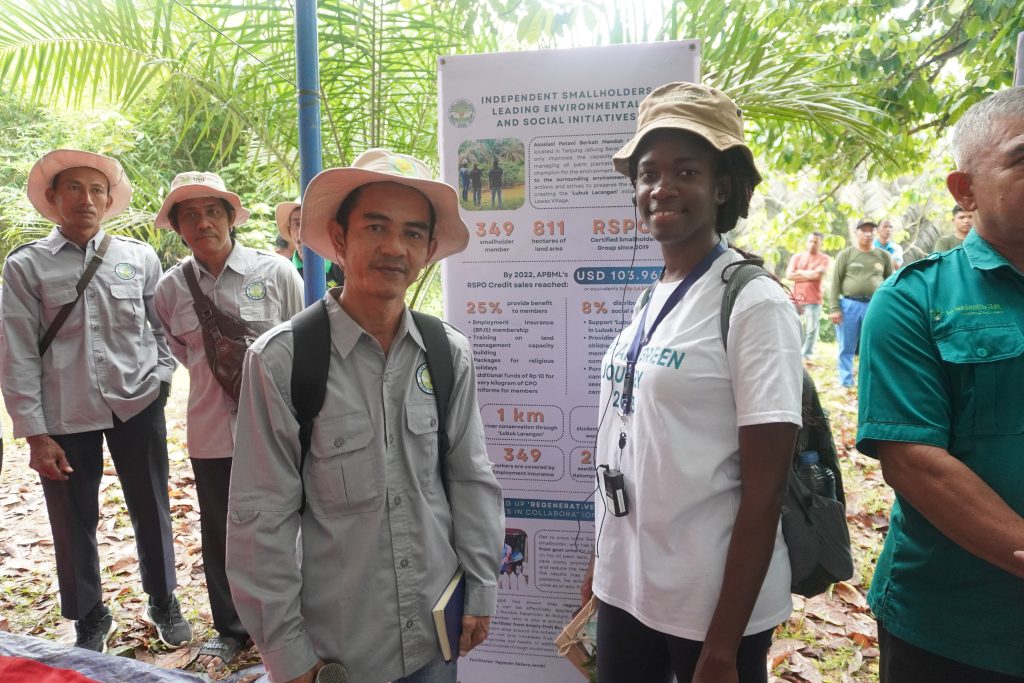
Imron implements regenerative and organic agriculture through the use of empty fruit bunches to fertilise his oil palms. He creates additional income cultivating mushrooms from the empty fruit bunches.
On the ride back, I reflected on the environmental and community impact we had witnessed. This was all made possible through RSPO Credits. Hearing the group manager of APBML, Ardiansyah, mention the European Union Deforestation Regulation (EUDR) in his address, I had asked him what his thoughts were. His response was a heart-tugging request: “Without RSPO Credits, we cannot run our activities. Tell your colleagues in Europe we are ready to make our farmers sustainable. Please help us so we can help our farmers who depend on palm oil to survive.”
They are concerned that companies with a linear focus to comply with the regulation will stop buying RSPO Credits altogether and as a result, they will have less funding to continue social and environmental programmes. At RSPO, we know that companies can still meet the regulation without compromising their commitment to smallholders. RSPO Credits are still the most direct way to support smallholders. Their hope, and mine too, is that the regulation will not hinder the incredible efforts of smallholders in engaging in sustainable practices. In summary, my brief but eye-opening journey with smallholders in Jambi has shown me that while regulations like the EUDR are a necessary means to drive a greener palm oil sector, we must take a step back to appreciate the intrinsic role that smallholders play in achieving the desired outcome. When we peel back the layers, the fact remains that sustainability can only be achieved with equity and inclusivity.
Keep reading

Access into prisma
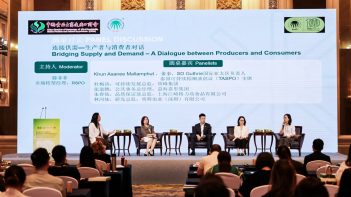
10 Years of RSPO in China: Driving Palm Oil Transformation Towards Sustainability
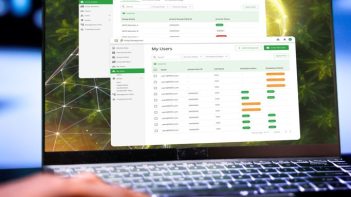
Updated Trace Function in prisma

Call for Expression of Interest: Independent Investigation of a Complaint

Latin American Smallholders, Key Global Brands Gather in Peruvian Amazon to Advance Sustainable Palm Oil

RSPO Forum for Members and Certification Bodies 2025: Strengthening Capacities and Building Bridges with RSPO Members

From Violence to Prosperity: Cultivating Sustainable Palm Oil in San Pablo, Colombia
